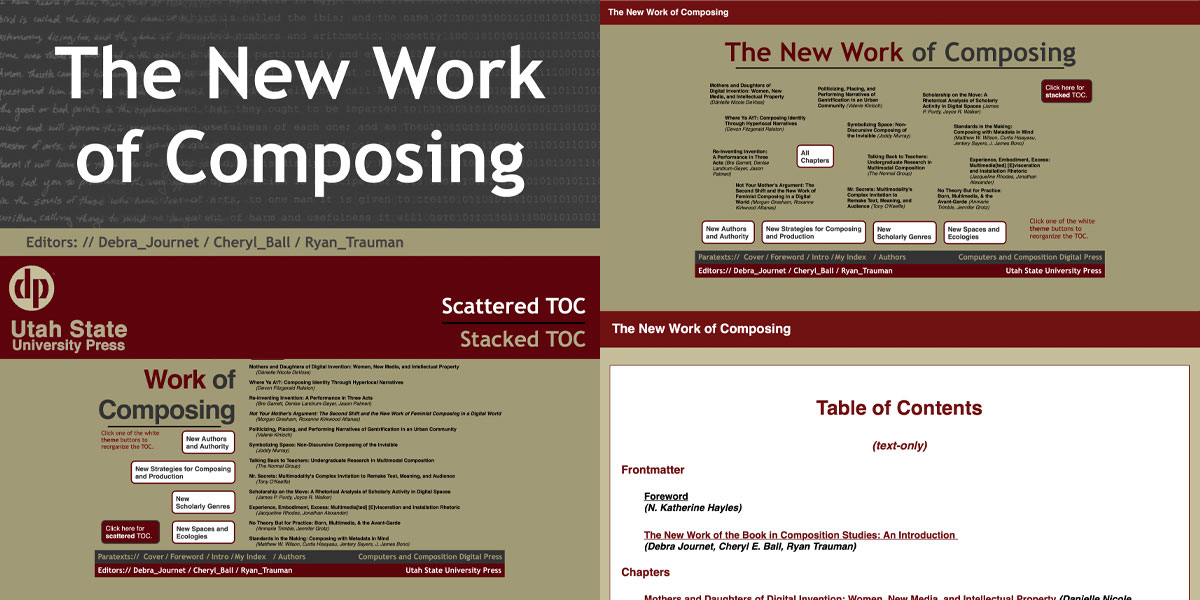The New Work of Composing

There are so many fascinating design elements in The New Work of Composing, but the most innovative is the responsive table of contents I designed and built from scratch. Because each article in the collection touches on multiple scholarly conversations, we (the editors) realized that there were several ways of organizing the table of contents, depending on the theme we wanted to foreground. Instead of privileging one over the others, I suggested that we have a table of contents that reorganizes itself in response to the conversation that most interests the reader. And because we weren’t limited by the linearity of page numbers, we offered two versions of the table of contents. One uses spatial relationships to convey relevance. The other uses a more traditional ordered list to organize the chapters.
This collection was the 2012 Computers and Composition Distinguished Book Award for the best book published in the field.
I produced the video below as part of the collection’s introduction.
Finally, I’ve included we wrote for the publisher’s promotional materials:
The New Work of Composing is a book-length collection whose purpose is to examine the complex and semiotically rich challenges and opportunities posed by new modes of composing, new forms of rhetoric, new concepts of texts and textuality, and new ways of making meaning. In particular, this book explores how digital media are shaping our understanding of scholarly projects within composition studies, including the need to
- reconsider print-centric conceptions of composing;
- theorize and illustrate new digital genres and interrogate definitions of authorial identity;
- consider how digital media change our understanding of (virtual and scholarly) space and place and allow new possibilities for embodiment;
- explore political implications of using new media in scholarship.
Twelve chapters that respond to these objectives were solicited from participants of the 2008 Thomas R. Watson Conference on Rhetoric and Composition and were reviewed by the book’s editors. The book includes a foreword by N. Katherine Hayles and responses to the themes above written by Marilyn Cooper, Paul Prior, Diana George, and Andrea Lunsford. Authors include established scholars in digital writing studies and digital humanities, as well as new voices."
Publication Info:
The New Work of Composing. Eds. Debra Journet, Cheryl Ball, and Ryan Trauman. Utah State University Press & Computers and Composition Digital Press, Fall 2012.